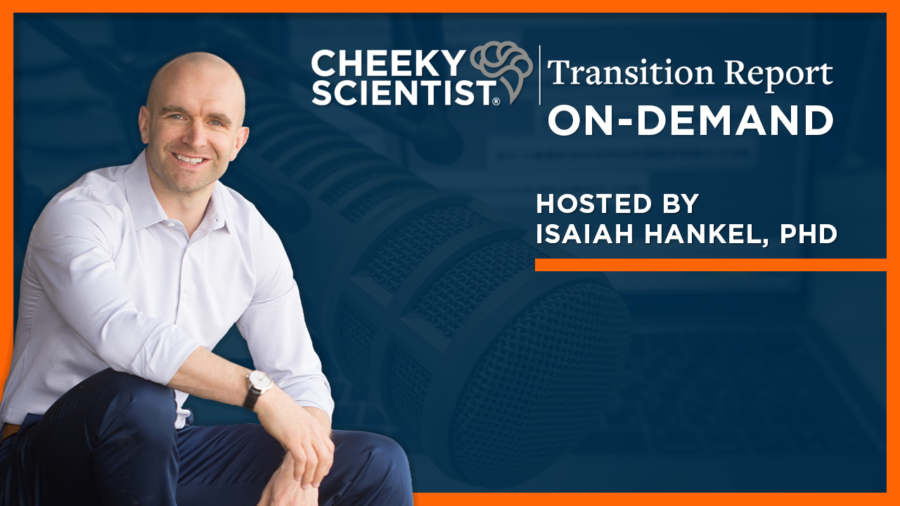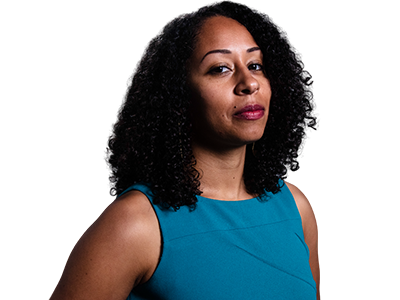Hosted By

Chief Executive Officer Cheeky Scientist

Join Isaiah as he reveals why making to-do lists will decrease your productivity and what you should do if you want to keep your job search on track
Here’s a quick rundown of this week’s episode…
- First, Isaiah tells the story of what used to happen to him when he relied on to-do lists to increase productivity
- Next, Isaiah reveals the scientific reasons of why to-do lists limit success
- Finally, Isaiah presents a strategy you can use to increase your productivity and keep your job search on track
From This Week’s Show…
What Happens When You Rely On A To-do List
In graduate school, I loved creating lists. I would write and rewrite lists of journal articles to read, experiments to do, people to network with, and workout routines to complete at night.
Every time I created a new list, I felt really productive, like I had just created something concrete, something that moved me one step closer to accomplishing my goals.
Of course, I never read any of the articles on the list; I only did the experiments I was told to do, and, once I showed up to the gym, did the same workout routine I had been doing for years.
Every Sunday, I would spend an hour writing a list of fifty tasks to complete during the week. Then, I would stare blankly at the monster I just created, put the list aside, and continue checking my email and scrolling through my Facebook feed.
Eventually, I realized that these to-do lists never resulted in practical results. Worse, they were reducing my productivity levels and damaging my initiative. Not only was creating these massive lists wasting significant amounts of my mental energy, but the infinite number of tasks on each list was also inhibiting my brain from deciding on which to complete.
Action items are rarely actionable. The greater the options you have, the fewer the decisions you are likely to make.
Why To-do Lists Don’t Foster Productivity
There are two scientific reasons why to-do lists limit success. The first is that the average to-do list exhibits heterogeneous complexity. In other words, the list contains some tasks that will take ten seconds to complete, some that will take ten minutes to complete, and some that will take ten hours to complete.
The average person will automatically focus on crossing off the ten-second tasks so he can receive the psychological payoff and dopamine release that comes with it as soon as possible. This means that tedious, yet important tasks (like writing a business proposal or completing the first chapter of your book) will stay on the list for a very long time.
The second reason why a to-do list limit success is that the average to-do list displays heterogeneous priority. Most to-do lists lack both context and hierarchy. This means the tasks that are most important to you “right now” will take top priority, even if they are a low priority overall.
Simultaneously, the tasks themselves do not provide any information about the best time to complete the task or how long each will take.
How You Can Stay Productive In Your Job Search
Learning to say “no,” on the other hand, protects productivity. Saying “no” also helps you prioritize. The fastest way to figure out what’s important to you is first to know what’s NOT important to you. (Just like every failed relationship you’ve ever had has taught you what you do NOT want in a partner more than it taught you what you do want.)
This is true in even the smallest matters of life. For example, I may not know what I want for dinner, but I definitely know what I do NOT want for dinner. This process of elimination can help you narrow down what you really want most in your career.
Which careers do you definitely not want to get into? Which day-to-day activities do you definitely not want to do? Do you recognize what you do NOT need in your career and life? If not, it’s time to gain an intimate understanding of the magical two-letter word, “no.” This one, simple word can eliminate a lot of distractions, problems and even toxic people who might be holding you back in your career.
If you’re ready to start your transition into industry, you can apply to book a free Transition Call with our founder Isaiah Hankel, PhD or one of our Transition Specialists. Apply to book a Transition Call here.










